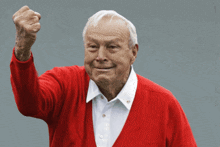Some very learned people,
- the people who founded our nation
- the person who wrote its first dictionary
- the president who kept it whole
- the president who won the Cold War
- and many many many other learned people have referred to the US as “a democracy.”
We can follow in the ways of the learned men who founded our democracy and called it that, and still call it that today.
Or, we can slavishly follow internet witticisms and trailer park lawyerisms
and thow out what the founders taught and did.
It is our choice.
democracy noun
1
: government by the people : rule of the majority: a form of government in which the people elect representatives to make decisions, policies, laws, etc. according to law
.
.
.
.
“It is a very serious consideration that millions yet unborn may be the miserable sharers in the event, if our democracy should fail."
— Samuel Adams
“Remember, democracy never lasts long. It soon wastes, exhausts, and murders itself. There never was a democracy yet that did not commit suicide.”
—John Adams
“I reciprocate your kind prayers for the protection & blessing of the common father and creator of man, and tender you for yourselves & your religious association, assurances of my high respect & esteem. The democracy of America will ever be an example to the world.”
— Thomas Jefferson
“If there have been those who doubted whether a confederated representative democracy were a government competent to the wise and orderly management of the common concerns of a mighty nation, those doubts have been dispelled.”
—John Quincy Adams
“In a democracy like ours, where the whole people are sovereign, the education of youth is particularly important to secure the liberties of the nation.”
–Noah Webster
“[T]he only title in our democracy superior to that of President [is] the title of citizen.”
—Louis Brandeis, 1937
“Democracy does not give the people the most skillful government, but it produces what the ablest governments are frequently unable to create: namely, an all-pervading and restless activity, a superabundant force, and an energy which is inseparable from it and which may, however unfavorable circumstances may be, produce wonders.”
—Alexis de Tocqueville, Democracy in America
“Democratic nations care but little for what has been, but they are haunted by visions of what will be; in this direction their unbounded imagination grows and dilates beyond all measure. Democracy, which shuts the past against the poet, opens the future before him.”
—Alexis de Tocqueville, Democracy in America
“The best way to enhance freedom in other lands is to demonstrate here that our democratic system is worthy of emulation.”
—Jimmy Carter
“The experience of democracy is like the experience of life itself—always changing, infinite in its variety, sometimes turbulent and all the more valuable for having been tested in adversity.”
—Jimmy Carter
“If we are to keep our democracy, there must be one commandment: Thou shalt not ration justice.”
—Learned Hand
“Democracy is never a final achievement. It is a call to an untiring effort.”
—John F. Kennedy
“The ignorance of one voter in a democracy impairs the security of all.”
—John F. Kennedy
“As I would not be a slave, so would I not be a master. This expresses my idea of democracy. Whatever differs from this, to the extent of the difference, is no democracy.”
—Abraham Lincoln, 1858
“Democracy is not a fragile flower; still it needs cultivating.”
—Ronald Reagan
“A democratic form of government, a democratic way of life, presupposes free public education over the long period; it presupposes also an education for personal responsibility that too often is neglected.”
—Eleanor Roosevelt
“Our children should learn the general framework of their government, and then they should know where they come in contact with the government, where it touches their daily lives and where their influence is exerted on the government. It must not be a distant thing, someone else’s business, but they must see how every cog in the wheel of a democracy is important and bears its share of responsibility for the smooth running of the entire machine.”
—Eleanor Roosevelt
“The principle on which this country was founded and by which it has always been governed is that Americanism is a matter of the mind and heart; Americanism is not, and never was, a matter of race and ancestry. A good American is one who is loyal to this country and to our creed of liberty and democracy.”
—Franklin D. Roosevelt,
“As citizens of this democracy, you are the rulers and the ruled, the lawgivers and the law-abiding, the beginning and the end.”
—Adlai Stevenson
“Democracy is not so much a form of government as a set of principles.”
—Woodrow Wilson
